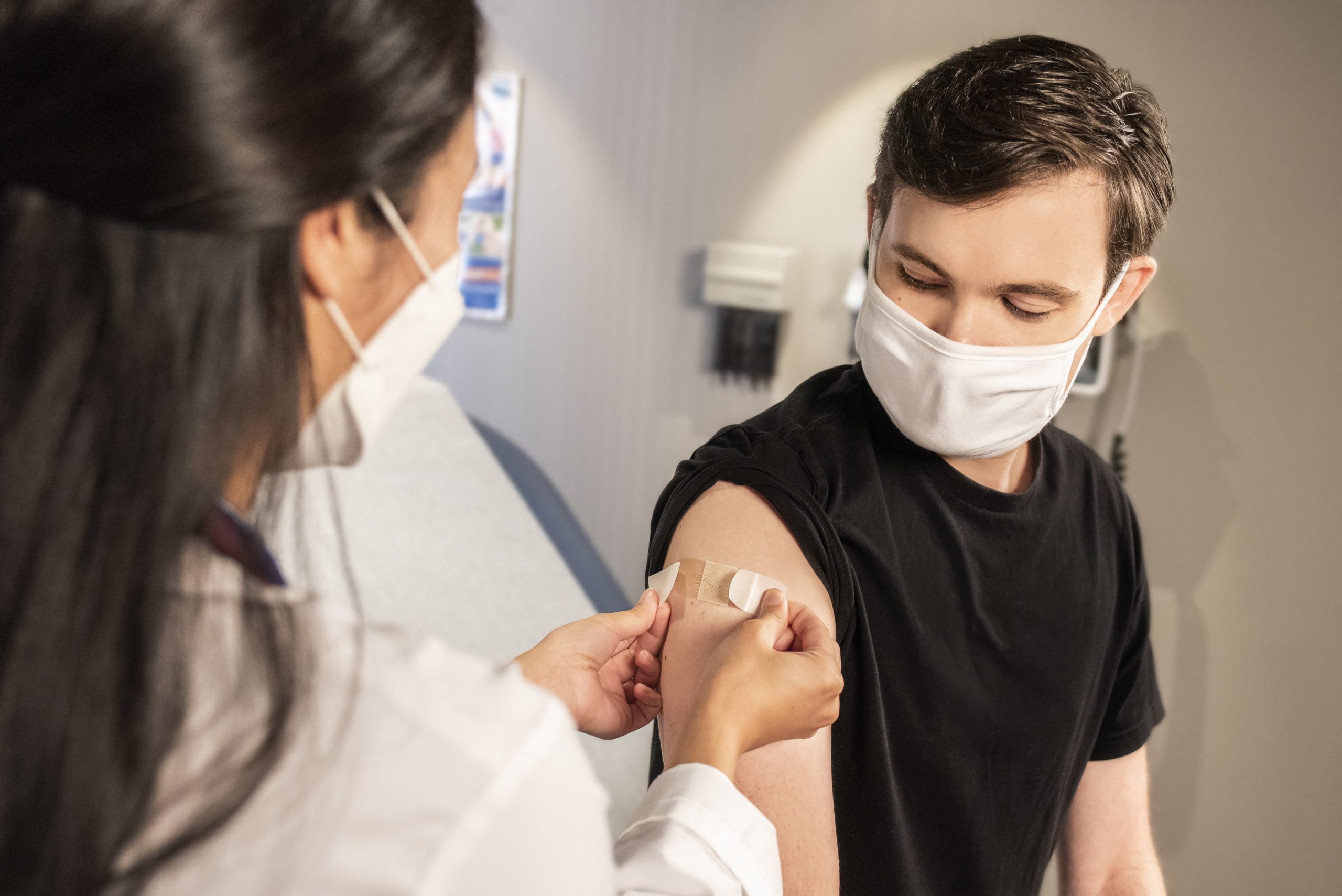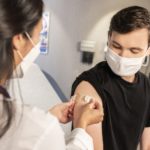Travel Smart With Our Top 5 Vaccinations Guide.
We all love to travel whether for work or pleasure, but if you are heading out globetrotting it’s important to take the right precautions. We’ve compiled this helpful list of the top 5 vaccines to help you stay safe during your jet-setting adventures.
If you’re an employer travelling with your team for work then why not contact OH Services for a no-obligation consultation? Our professional healthcare teams are on hand to ensure that you have not only the right vaccinations but are also kept up to date with the latest safety measures, tips and travel tricks.
Diphtheria, Polio, Tetanus (Revaxis)
The Revaxis vaccine provides protection against three major illnesses and diseases that can be either highly contagious or debilitating. Revaxis protects against Diphtheria, Tetanus and Poliomyelitis (polio). This vaccination does not contain live bacteria and is usually given as an injection in the upper arm.
Revaxis boosts the protection that you were given during your childhood vaccines and is provided as a course of five injections that will provide long-term protection.
For more information on the Revaxis Vaccine, why not visit fitfortravel.nhs.uk.
Typhoid
TYPHIM Vi is a single-dose injection that can provide some protection against Typhoid Fever, the caveat, however, is that TYPHIM cannot be given to children less than 2 years old, so it is important to take extra precautions and manage risk when travelling with a child or infant.
You can reduce your risk of becoming infected with Typhoid while travelling by abiding by these helpful tips.
- Follow the NHS guidance concerning food, water and drinking water precautions.
- Take effective hand hygiene and personal hygiene measures.
You can get full NHS guidance surrounding Typhoid from Fit For Travel, a practical NHS Guide for staying safe while travelling abroad.
Hepatitis A + B (Twinrix)
Hepatitis A and B are infections of the liver that can be picked up in a variety of ways depending on the variation. It is important to vaccinate against Hepatitis A + B before you travel and your doctor will advise you on a dosing schedule that is right for you.
It is important to complete the vaccination course prescribed for you to ensure that you are fully protected against Hepatitis A and B.
You can find out more about Hepatitis A and Hepatitis B by following these helpful links.
Rabies
Rabies is a serious viral infection which affects the brain and nerves. The virus is spread through the saliva of infected animals, usually following a bite or scratch.
A full ‘primary’ course of rabies vaccines (before travel) consists of three doses given over 3 to 4 weeks. A more rapid schedule of vaccination may be possible if you are due to travel before you can complete the course, you can discuss this option with your travel health practitioner.
If you complete a full ‘primary course’ of rabies vaccines before you travel you will develop antibodies in your blood against the rabies virus. These will help protect you if you have a rabies exposure, but you must still seek medical attention after a rabies exposure and do immediate wound care.
After a rabies exposure, you only need 2 extra doses of rabies vaccine given over 3 days: – These are booster doses to ensure your antibody levels are high enough to combat the rabies virus.
Visit Fit For Travel for a full breakdown of Rabies Risk Areas.
Yellow Fever
Yellow fever is a disease that is transmitted by infected mosquitoes. The most common symptoms are fever, muscle pain with prominent backache, headache, loss of appetite, and nausea or vomiting.
A small proportion of those infected with yellow fever will develop severe disease. Symptoms of severe disease include jaundice (yellowing of the skin and eyes), dark urine, stomach pain with vomiting and problems with liver and kidney function. Half of those that develop the severe disease will die within 7 – 10 days
Stamaril® is a live vaccine, which means that it contains a weakened form of the yellow fever virus. Live vaccines do not cause disease in healthy people but are not suitable for people with an impaired immune system, for example, caused by drug treatment or underlying illness. This is because the weakened viruses can multiply and may cause yellow fever-like disease in these individuals.
One dose of the yellow fever vaccine provides lifelong protection for most people. A booster dose would only be recommended if you were previously vaccinated in one of the following circumstances:
- while pregnant
- less than two years old
- had a weakened immune system
- whilst infected with HIV
- before undergoing a bone marrow transplant
Where a certificate is not required for entry into a country, this does not necessarily mean there is no risk of disease and the yellow fever vaccine might still be recommended.
You can find a detailed list of Yellow Fever Risk Areas here along with a Pre Vaccination Checklist.
Thanks For Reading!
We hope this information has helped to relieve the stress of travelling the world. If you have found this article helpful let us know on Social Media, we would love to hear from you.
If you would like to see more educational articles like this one, then check back at our blog, we’re adding new content all of the time.




